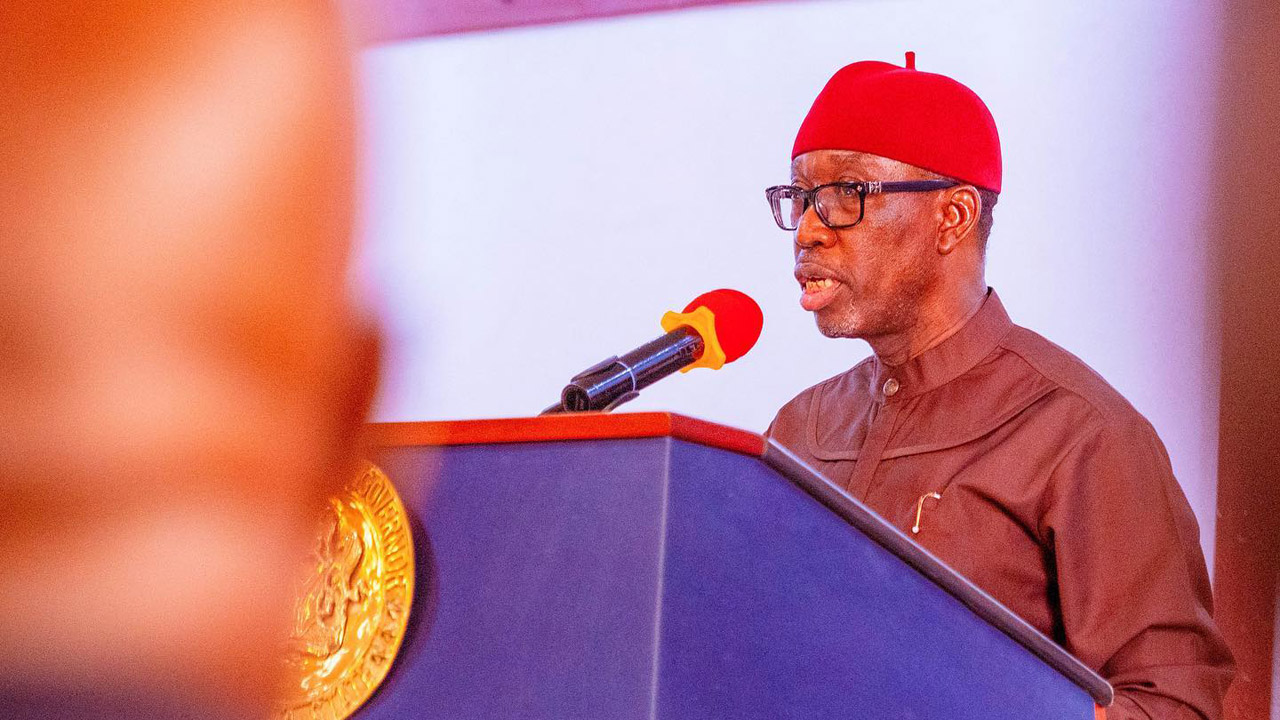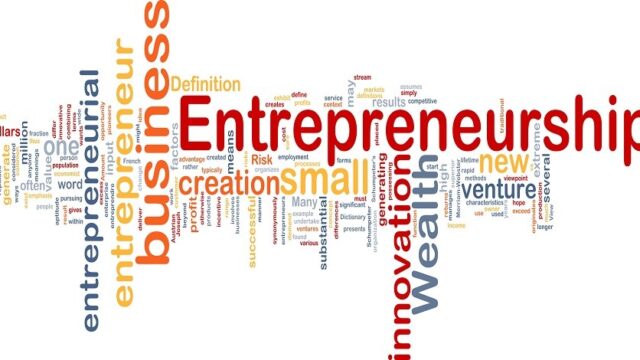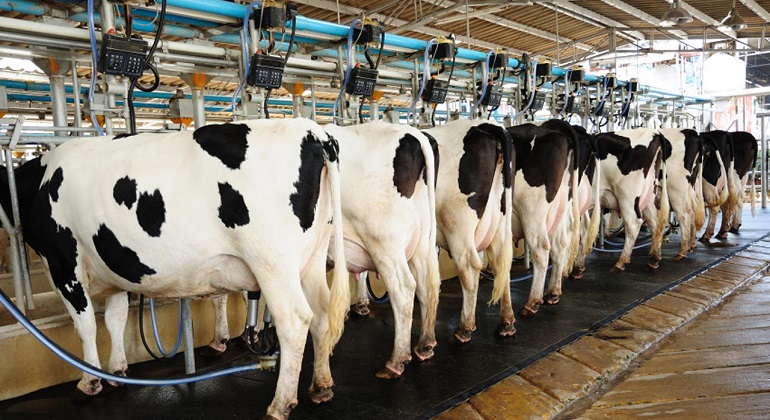
In an odd era where demography of the poor rises proportionally with more votes to poverty alleviation programmes, a unique model is changing the narrative in Delta State. From that experience, WOLE OYEBADE writes that entrepreneurship remains the viable window to jobs and wealth creation, if handlers will eschew the misfortune of stifling bureaucratic bottlenecks and throwing money at old problems.
History will be made this Wednesday in Asaba, Delta State, when a number of Nigerian youths will be inducted into the state-owned Hall of Fame. They are a handful of individuals that have distinguished themselves in their chosen walk of life. But that is not the story.
The real gist is that theirs are testimonials of uphill determination meeting opportunities to create landmark success. In about eight years of walking the ropes of new skills, getting prepped by professionals, and setting out only with hope, they have made successes of their enterprise. Today, they are not only CEOs and employers of labour; the honouraries are mentors for clusters of budding entrepreneurs blossoming in Delta.
Indeed, their rags-to-riches entrepreneurship stories portend a paradigm shift from the oddly familiar narratives of failed or vanishing empowerment schemes that empowered nobody.
From Delta, these noble Nigerians, and their rallying state government, have proven that entrepreneurship remains the pathway to economic prosperity for all – if it is backed by sincerity of purpose and devoid of opaque execution.
Not for lack of empowerment programmes
Governments across the states and the federal level have rarely been in want of entrepreneurship ideas and attendant schemes targeted at lifting the masses out of poverty. A roll call of such initiatives dotting the landscape in the last eight years will wow many.
At the Federal level for instance, the government recently acquired a whopping $800 million from the World Bank under the guise of fuel subsidy palliative cum social investment for Nigerian masses. By the design, the largesse was meant to be distributed in bits to Nigerians, without any known official record for such purposes.
It was the similar model of ‘empowerment’ that was adopted by President Muhammadu Buhari’s social investment initiative in 2020. The scheme, worth N52 billion, employed 1000 persons from each 774 local governments nationwide, and paid N60, 000 each for the three months duration of casual jobs. Alleged hijack of the nomination process by the political office holders, coupled with the want of transparency in disbursement has rested the initiative.
During COVID-19 lockdown, the Federal Government spent over N2 billion on poor Nigerians. All state governments and successive administrations also have similar initiatives, often chaired by the first ladies.
Great commitment across the board, but how effective are they in soothing the pans of poverty in the last eight years? Not much, as far as recent records will show.
Besides Nigeria overtaking India as the poverty capital of the world in 2018 (with a record 87 million people in extreme poverty!), the Multidimensional Poverty Index survey 2022 estimated 133 million people (63 per cent) are poor, lacking in all basics of good life. Clearly, the more the attempts to ‘empower’ Nigerians, the more they sank below the poverty line!
A breath of fresh air
Interestingly, the narrative is entirely different in one state – Delta. The last eight years has had a structured attempt at wealth creation through a rash of direct and indirect empowerment initiatives. A radical departure from others like it is the mass output of real beneficiaries that are still telling the stories years after.
Omorode Kenneth is one of those beneficiaries. Kenneth is a non-indigene that was posted to Delta for NYSC, and concluded without a good job. He heard of the Delta State Government’s Skills Training and Entrepreneurship Programme (STEP) initiative, and applied for 2021/2022 batch, to be trained in fashion designing. He told The Guardian: “Interestingly, we were being paid stipend during the training. “Today, I’m proudly a tailor and full-grown independent man, because of the great opportunity,” Kenneth said.
Like Kenneth, Peter Samuel also enrolled in the 2021/2022 batch, to become an electrical and solar entrepreneur. Samuel was a security guard, earning N20, 000 pay monthly.
“The pay was nothing to write home about. So, I heard of the entrepreneurship programme, and I applied. I was shocked to have been selected because I know nobody. Today, I have my own shop at the Junior Staff Quarters, and doing very well in electrical and solar services,” Samuel said.
Bukola Julian is among the 2020-set of fashion designer STEPpreneurs. She was a miserable merchant before the state-owned opportunity beckoned. Julian said: “I was not happy with the buying-and-selling. So, when the STEP form came out, I applied and I was chosen. I got trained in fashion designing. I stayed focused, and did the training successfully. I did the proficiency test, and I hailed myself at the end of it.
“During the training, I was saving my stipends. I later used it to buy a stoning machine, and added it to the starter pack that I received at the end of the training. Today, I am the CEO of Bukkizy’s Stitches, and my shop is at DNA Road, Asaba.”
Much earlier on the registry is Chima Emmanuel Ode. The bachelor enrolled into the programme as a fashion designer in 2017. Today, he is a comfortable family man, and the owner of CEO Designs.
“I was trained in 2017, and empowered with a starter pack, a straight sewing machine, weaving machine, iron, ironing table, generator, and cash to pay one-year rent – all by the Delta government. Today, that has generated seven straight industrial machines, 18 manual machines, and two generators. I have trained more than 30 students. I have five employees working for me presently, and another three on the night shift. This programme has been of blessing to my life,” Ode said.
Lucky Ugede Faith was a full-time housewife, and a fashion designer, who only sowed for the fun of it. In 2017, she also enlisted for STEP like Ode. Today, she is the CEO of Jazz Stitches.
Faith said: “I not only got empowered, I was shocked at the end of the training to receive two giant sewing machines and a generator. I told my husband ‘these machines cannot fit into our apartment. Definitely, I need a shop’.
“I started from a one-room shop. Soon, I expanded to a two-room shop. Now, I occupy a five-bedroom apartment, and before the end of this year, I am thinking of buying a building for Jazz Stitches.
“I have 15 apprentices in my care. I have trained over 90 for the state. I also train and empower my church too, because the state government gave me the lift that I need, and I have to give to others too. I now go round mentoring other trainees, to be like me,” she said.
Prosperity for all
There are others that went into agribusiness, and Helen Udoma is an unusual proud fish farmer. “That is the beauty of this empowerment programme; we break gender barriers. I am doing very well on my farm. We sell smoked and fresh fish nationwide.”
Like Udoma, Jane Uzonitcha is today a poultry farmer, and full of gratitude for the capacity building with direct impacts on families. “Why I graduated, I knew I could not afford to go back home, and not do anything because of where I was coming from. And grace found me. I got the entrepreneurship form without knowing anybody. I was among the first set in 2015/16.
“We were settled at Agricultural Development Programme (ADP), Ibusa. And on day-one, I heard one of the staff say: ‘these ones, I give them one year, they will all pack up!’ It sank in my head. Today, seven years later, we are still in business. Come to ADP, we have very hungry youths doing this poultry business, and we have been consistent.
“From poultry, we have diversified into vegetable farming, and we collaborate to do tomato farming. We cried to state officials that we need drip irrigation, and they came to our aid.
“Because I was single, and always on the farm, some people were worried for me about finding suitors. But God has a plan for me. State government empowered another set, and my husband was one of them. Today, I have all-round fulfillment,” Uzonitcha said.
Chibike Nwankwo is another beneficiary with an expanded coast. He started as a fish farmer, and now an agribusiness consultant. He was empowered in 2016, with 145 bags of fish food, three ponds, and 2000 fishes.
“Three years later,” Nwankwo said, “I have expanded to 13 ponds and over five staff on my payroll. I consult for seven farms nationwide, and now export well-sauced dry fishes to Germany, England, Canada, and nationwide.”
CEO of Nuela Clinton Farms, in Aniocha South Local Government, Emmanuela Clinton, started farming like others. She was in October 2015 invited to the job creation programme, at a time farmers were scorned by their friends and family.
“I came up with the mindset that the narrative has to change,” she told The Guardian. “We went round the 25 LGAs in Delta, in search of actual poultry farmers. On that day of free distribution of items, we had farmers and widows that were in tears of joy, saying “God has finally remembered us’. It was very touching for us all.
“Today, I am 10 years in business, and I consult for Delta and the federal governments. When I meet with people, I let them know that farming is not for uneducated people. I started as a BSc degree holder, and from farming, I have been able to school myself through, and enrolled for a doctoral degree programme.
“I studied Economics at Covenant University. When I was going into farming, my grandmother was like ‘this is not why I trained you in Economics. You should be in an air-conditioned office working, not on the farm and in the sun’. Today, I have employed her as my farm manager, and she is so proud of what I am doing.”
Not a flash in the pan
Head of Delta State Job and Wealth Creation Bureau, Prof. Eric Eboh, noted that Clinton, Nwankwo, Uzonitcha, Faith, and others, were among the 1226 golden beneficiaries (of the state government’s gesture), with moving testimonies that would be unveiled by Governor Okowa at the special section on tomorrow, May 10, 2023.
Eboh, a two-decade practicing professor of agro-economics at the University of Nigeria, Nsukka, said they are all testaments to Delta’s landmark achievement in empowerment initiatives.
Commissioner for Information, Charles Aniagwu, added that the state government’s direct beneficiaries of skills acquisition, entrepreneurship development, and youth empowerment programmes already totalled 14,075 persons.
Over 37,922 have been empowered under the Youth Skills Acquisition/Learning and Skills Upgrading Programmes. Another 62,281 persons have been supported under the Direct Interventions in Support of Micro, Small Businesses and Enterprises and Livelihood Support. Indirect and ancillary jobs have a total of 1,325,750 beneficiaries.
Aniagwu said the teaming demography of beneficiaries in the last eight years underscored the healthy ratings Delta has enjoyed lately. He said: “based on the most recent statistics of National Bureau of Statistics (NBS), the unemployment rate is 13 per cent less than the national all-states average of 37.2 per cent. Besides, Delta state was ranked the second lowest poverty rate in 2020, a significant leap from 12th lowest poverty rate in 2010, according to the most recent national survey by the NBS.”
Why it is working in Delta
On why empowerment initiatives are working in Delta, Eboh said the governor had to take some bold steps. “He removed the programme from bureaucracy. Before we had the Bureau, we had the Office of the Job Creation Officer domiciled in the governor’s office, with myself and the Chief Job Creation Officer.
“Secondly, the governor provided 100 per cent political protection to the programme. Since June 1, 2015 that I took office till today, the governor has never interfered in running the programme. Once we develop our plan, ethics, rules, and funding, he just looks at it, does some oversights, and takes it to the State Executive Council, he approves it, and we run with it.
“He allows the professional management of the programme, which if you remove, it will collapse like all others. Third, he (Okowa) took the programme out of the very suffocating bureaucracy of governance.
“This programme demonstrates that the government can work for the people, but on certain parameters of allowing professionals to run it without sending complimentary cards or making telephone calls for requests. Then, you can hold handlers accountable for results,” Eboh said.






